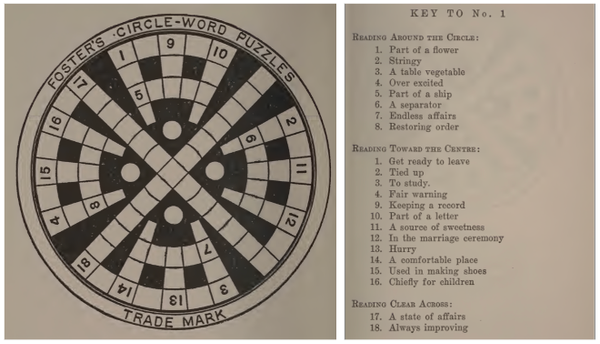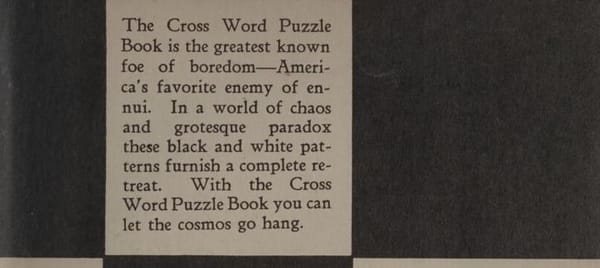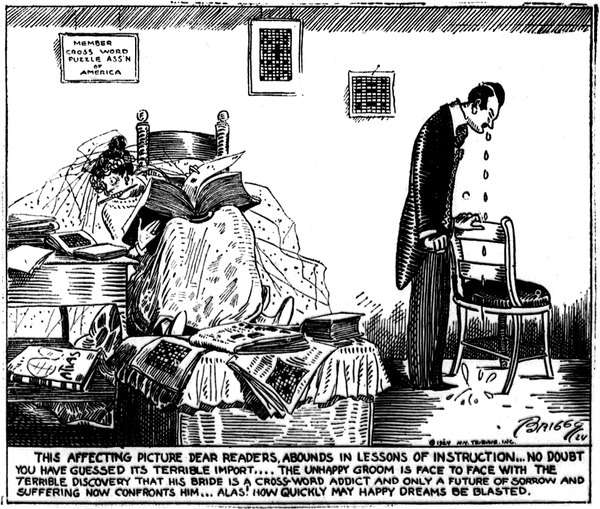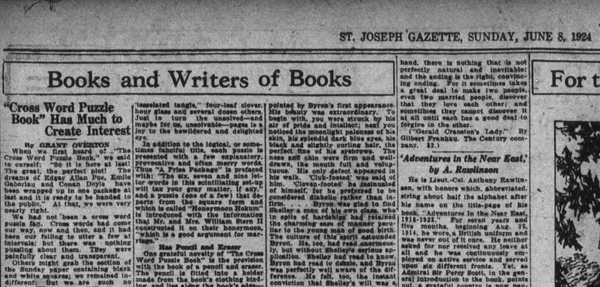The Crossword Champion vs. "the Lady Wizard of the Art"
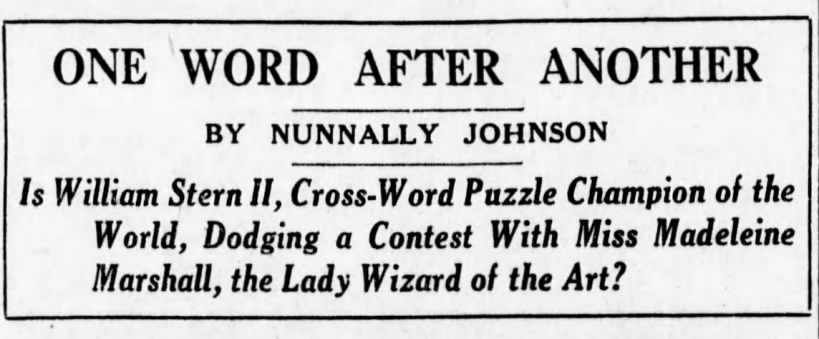
Three months after the first-ever crossword puzzle championship, held at the National Cross Word Puzzle Convention in New York on May 23, 1924, one newspaper columnist tried to stir up a good-natured rivalry between the top two competitors. As was widely reported at the time, the winner of that first crossword contest was William Stern II, who solved the championship puzzle in "10 minutes, 10 and two-fifths seconds." But as Nunnally Johnson reported in his column "One Word After Another" in the Aug. 20 issue of the Brooklyn Daily Eagle, the second-place finisher, Miss Madeleine Marshall, was close behind and deserving of a rematch.
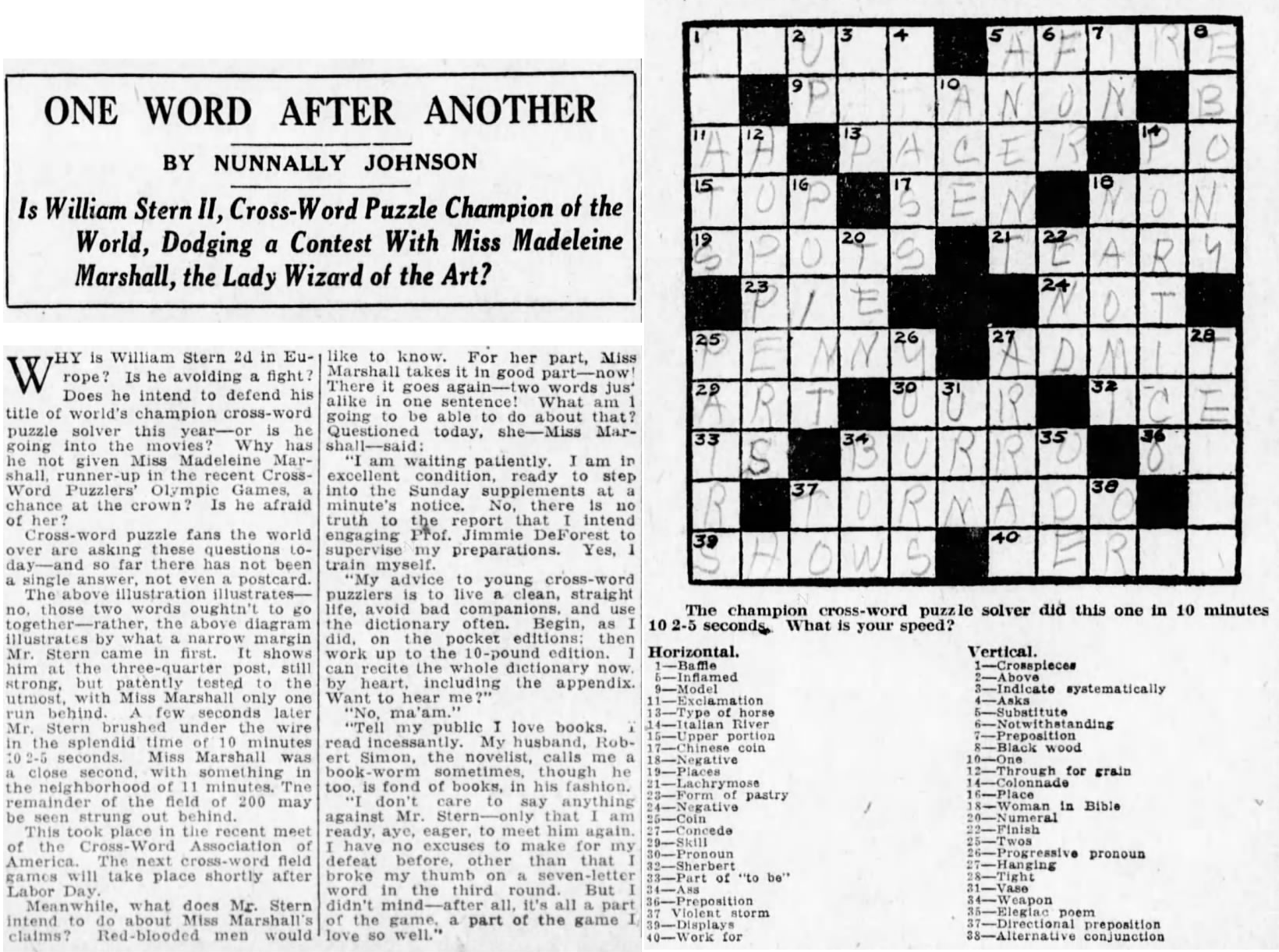
Johnson, who would go on to become a noted screenwriter and director, used his column to engage in a little lighthearted shit-stirring, treating the speed solvers as if they were rival prizefighters.
Why is William Stern 2d in Europe? Is he avoiding a fight? Does he intend to defend his title of world's champion cross-word puzzle solver this year—or is he going into the movies? Why has he not given Miss Madeleine Marshall, runner-up in the recent Cross-Word Puzzlers' Olympic Games, a chance at the crown? Is he afraid of her?
Cross-word puzzle fans the world over are asking these questions today—and so far there has not been a single answer, not even a postcard.
The above illustration illustrates—no, those two words oughtn't to go together—rather, the above diagram illustrates by what a narrow margin Mr. Stern came in first. It shows him at the three-quarter post, still strong, but patently tested to the utmost, with Miss Marshall only one run behind.
A few seconds later Mr. Stern brushed under the wire in the splendid time of 10 minutes 10 2-5 seconds. Miss Marshall was a close second, with something in the neighborhood of 11 minutes. The remainder of the field of 200 may be seen strung out behind.
This took place in the recent meet of the Cross-Word Association of America. The next cross-word field games will take place shortly after Labor Day.
Meanwhile, what does Mr. Stern intend to do about Miss Marshall's claims? Red-blooded men would like to know. For her part, Miss Marshall takes it in good part—now! There it goes again—two words just alike in one sentence! What am I going to be able to do about that? Questioned today, she—Miss Marshall—said:
"I am waiting patiently. I am in excellent condition, ready to step into the Sunday supplements at a minute's notice. No, there is no truth to the report that I intend engaging Prof. Jimmie DeForest to supervise my preparations. Yes, I train myself.
"My advice to young cross-word puzzlers is to live a clean, straight life, avoid bad companions, and use the dictionary often. Begin, as I did, on the pocket editions; then work up to the 10-pound edition. I can recite the whole dictionary now. by heart, including the appendix. Want to hear me?"
"No, ma'am."
"Tell my public I love books. read incessantly. My husband, Robert Simon, the novelist, calls me a book-worm sometimes, though he too, is fond of books, in fashion.
I don't care to say anything against Mr. Stern—only that I am ready, aye, eager, to meet him again. I have no excuses to make for my defeat before, other than that I broke my thumb on a seven-letter word in the third round. But I didn't mind—after all, it's all a part of the game, a part of the game I love so well."
A few notes: Jimmy DeForest was a trainer who worked with many top boxers, most notably Jack Dempsey, then the world heavyweight champion. Thank goodness Johnson dispelled the notion that Miss Marshall might train with DeForest for her next title fight against Mr. Stern.
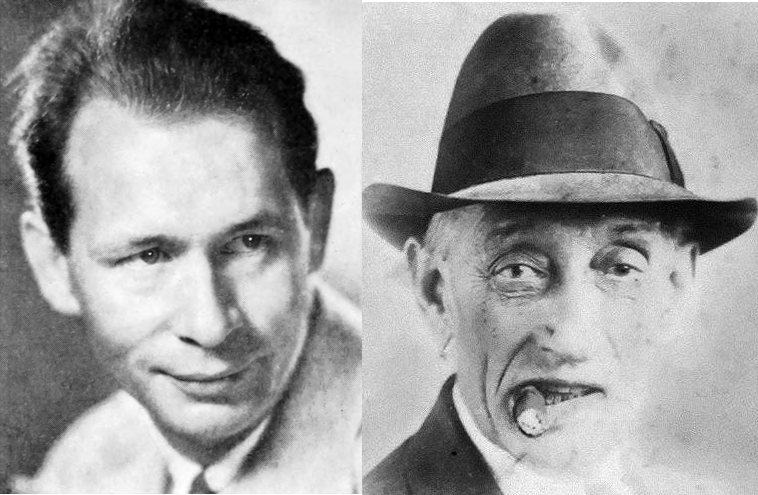
Meanwhile, who was Madeleine Marshall? We learn from Johnson's column that she was married to "Robert Simon, the novelist." The New York Times obituaries for Marshall and Simon help fill the gaps. Simon would serve as music critic for The New Yorker from 1925 to 1948, and also wrote librettos for operas and musical comedies. Marshall would find fame as a singing coach and concert pianist, teaching diction at the Juilliard School of Music and writing The Singer's Manual of English Diction in 1953.
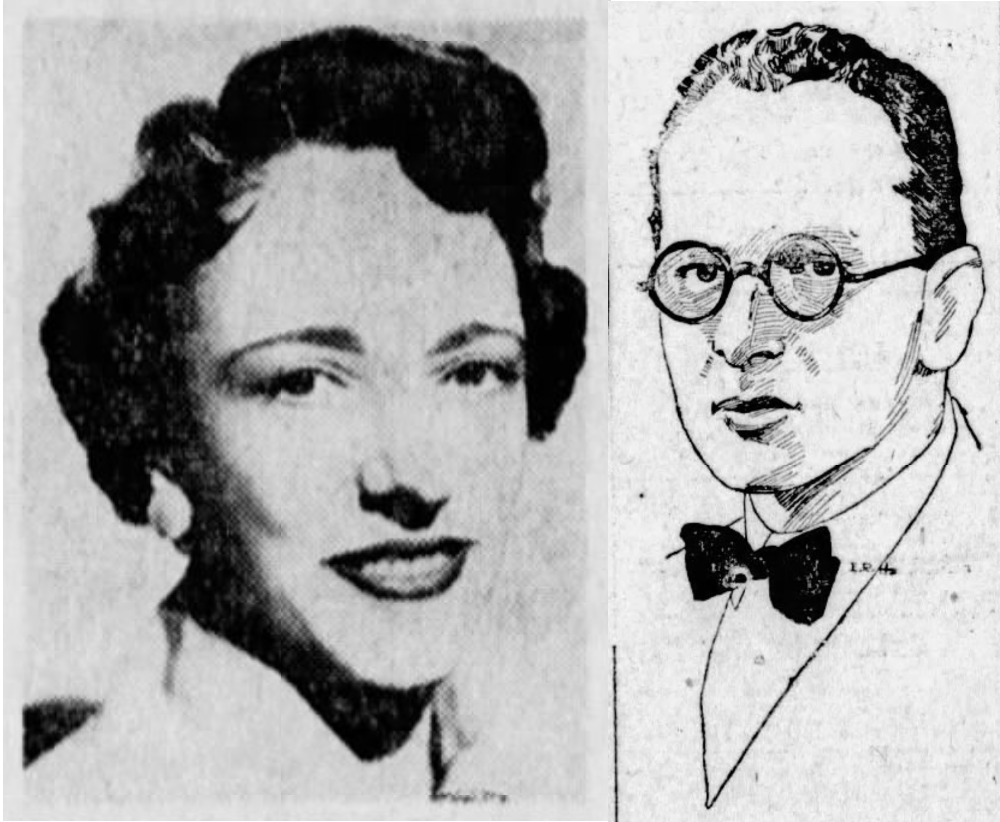
I would guess Johnson knew Marshall and Simon from the New York arts world, and they decided to have some fun by treating cruciverbalism like pugilism. Speed solvers of today should take heed: if you don't train properly, you might break your thumb on a seven-letter word!
P.S.: Here's the solution to the championship puzzle, as printed in the Tampa Times. If the version in the Brooklyn Eagle really was William Stern II's grid at the the three-quarter mark, he must have eventually realized his errors at 17-Across (YEN) and 5-Down (AGENT).


